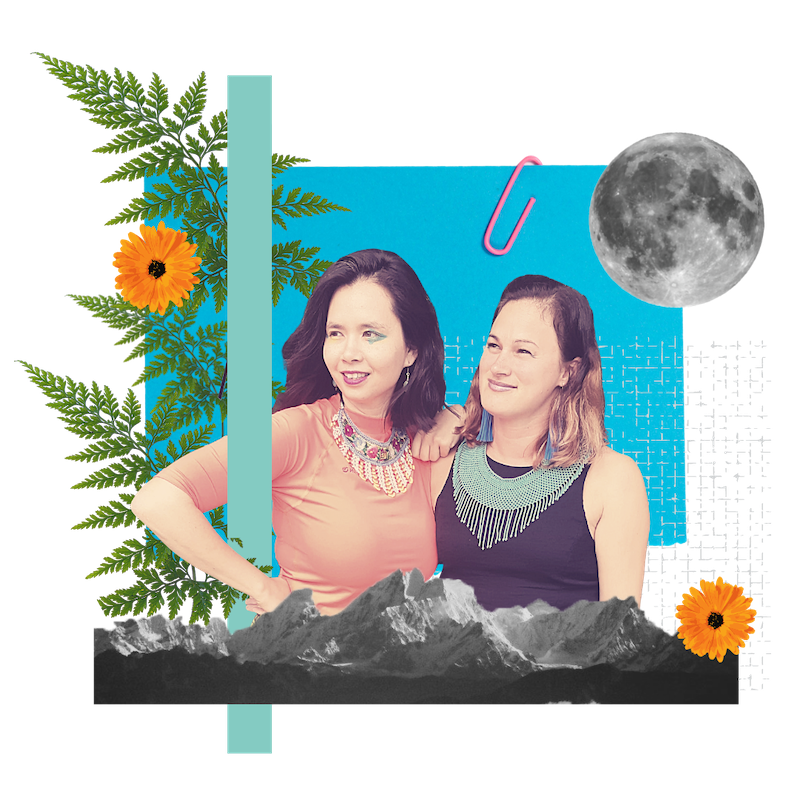A luta continua. The struggle continues. A popular phrase in social justice movements, and in a time of global pandemic, climate and intersecting political crises, the struggle must continue if we are to survive. We shout it with determination and perseverance, but how can we actually make our own struggle an experience of joy?
 To ensure we survive, and actually thrive, we believe the answer is in our relationships with each other. It’s the people who encourage us to do something scary and who cackle with us in the face of oppression, it’s the company who are comfortable to sit with you in silence and who learn to understand you without words, and it’s the people we dance with at the afterparty and who you still love to see on the screen after almost two years of COVID-19 zoom fatigue.
To ensure we survive, and actually thrive, we believe the answer is in our relationships with each other. It’s the people who encourage us to do something scary and who cackle with us in the face of oppression, it’s the company who are comfortable to sit with you in silence and who learn to understand you without words, and it’s the people we dance with at the afterparty and who you still love to see on the screen after almost two years of COVID-19 zoom fatigue.
As part of the conversation on the reorganising power in philanthropy and coinciding with the International Day of Friendship, we explore the significance of friendship in philanthropy and our movements. Lisa M. Tillman-Healy argues the merit of using ‘friendship’ as a method of qualitative inquiry which involves researching with ‘the practices, at the pace, in the natural contexts, and with an ethic of friendship.’ This method resonates deeply with our experiences, politics, and lessons learned, especially during our tenure as co-leaders of FRIDA | The Young Feminist Fund, the world’s largest participatory youth-led fund, and our consulting work supporting funders to resource activists and movements.
Borrowing from the research method, we want to use ‘feminist friendship’ as a lens for understanding and transforming power and trust in relationships between funders and grantee partners, among different generations, and as part of leadership structures.
We kick off this four-part series with a focus on our own journey as co-leaders/friends. Our friendship began more than a decade ago, beginning over a bowl of pho in Cambodia, becoming defined during our co-leadership at FRIDA, and lasting today across almost 20,000 miles and nine hours of time difference apart.
Speaking of ‘friendship’ at work can often elicit a contrarian emotional response – especially when power and decisions are at play. Knowing that personal relationships can lead to an abuse of power, claiming the positive power of ‘friendship’ can be met with some cynicism. This skepticism is also linked to assumptions that friendships at work are often superficial, defined only by having a good time with someone, or unnecessary.
But for us, friendships have been a vehicle to interrogate our varied realities and access to power and resources, and to harvest a deeper understanding and language that weaves accountability with care and humility. Our friendship has been formed by good times and bad, with honesty that can be beautiful and difficult, and through hard work and love. Our friendship is a treasured ‘product’ of our co-leadership, but more importantly a ‘praxis’ for us going forward. Here we share some of the principles of our feminist friendship as method:
Closeness, vulnerability, and empathy
Over the years, we have always worked virtually, more than twelve hours between us, from Korea to Mexico, and Morocco to Sydney. With one of us waking up and taking over work from the other as they go to bed, we have often joked sardonically that we resembled a 24-hour production line. At FRIDA, we were aware, though never immune, to the dominance of capitalist culture in our work. We did our best to build rituals, make space for personal check ins, and offer up personal information to each other so that we brought our whole selves to work, and not just our labour and skills to deliver a task. We collectively created this Happiness Manifestx with the FRIDA team and intentionally found ways to weave collective care into our culture and our practice. In addition, we planned meetings together in the same location at least two times a year since physical proximity accelerates and strengthens a sense of closeness that you expect from a friend. This intentional familiarity opened up more opportunities for us to be vulnerable with each other. As feminists, we used these experiences of vulnerability to recognize the flows of power within our relationship – when one of us was stronger at a certain skill than the other, and sharing how that made us feel intimidated, or when only one of us was invited to a conference and the other confessed their jealousy. Indeed, a uniquely defining moment for us as women leaders who wanted to have children, was when one of us experienced a miscarriage around the same time another fell pregnant. During this time, we had to respect the different levels of energy each of us brought to work and gently navigate our interactions while holding confusing feelings of sadness, joy, shame, and guilt – it demanded our greatest level of empathy with each other as women, colleagues, and friends.
Conflict and boundaries
While we believe in the power of closeness, we also believe in the power of boundaries as part of our friendship method. Friendship as method should not imply that we are always laughing and having fun with each other. In fact, friendships become stronger when they endure conflict. We are grateful for our coaches and advisors who helped us understand ourselves and each other, especially when it comes to managing conflict. These coaches gave us many helpful popular tools and methods to manage conflict like the Compass of Shame and we also developed our own methods such as sending each other a rainbow emoji as a symbol when we needed space or timeout.
As embodiment coach and conflict facilitator Prentis Hemphill says, ‘Boundaries are the distance at which I can love you and me simultaneously,’ and in our co-leadership practice, we set boundaries in many ways. This included the practical decisions of dividing our work and delineating our ‘jurisdictions’, as well as the emotional language to communicate when limits were being pushed. Modelling boundaries and saying no is a muscle we are still strengthening, but have been integral to our friendship and leadership.
Paolo Frieres says that resistance is a matter of liberatory praxis – a practice of critical reflections followed by actions that lead to more pointed reflections. If we can practice and create the relationships we want, that hold trust and dignity at the core, then we can more easily get through complexity and conflict that is inherent in our struggle for a new world.
Philanthropy is currently facing a reckoning, for its manifestations of centralised, unaccountable power, and practices that reinforce neoliberal western hegemony and patterns of white supremacy. Conversely, there are growing examples of breaking ground in philanthropy: in co-leadership models, trust-based philanthropy, decolonized philanthropy and reparations, participatory grantmaking, and increased flexibility and risk taking by some funders especially during the pandemic. We offer’ friendship as method’ as a tool to complement the broader structural reimagining and reform of philanthropy.
In the next article we will look at the method of friendship in another relationship – diving deeper into relationships between funders and activists.
Ruby Johnson, is a feminist activist, practitioner and strategist, working to redistribute resources and power to intergenerational feminist movements. She is the former Co-Executive Director at FRIDA.
Devi Leiper O’Malley is a social justice advisor and strategist, supporting funders and feminists to redistribute resources. Most recently, she was Co-Executive Director of FRIDA | accompanied the formation of Uganda’s first sex-worker led collective, WONETHA.
In 2020, Ruby and Devi co-founded and co-produced Remember Who Made Them with Swatee Deepak and Venetia La Manna, a six-part podcast and digital campaign for garment worker solidarity. Ruby and Devi are currently authoring on a piece of research on Co-Leadership models in philanthropy and feminist organisations.







Comments (1)